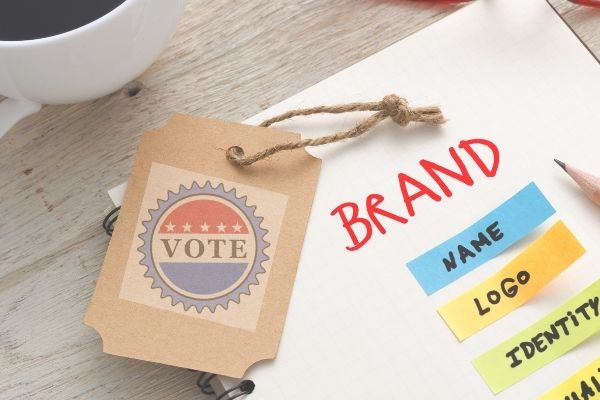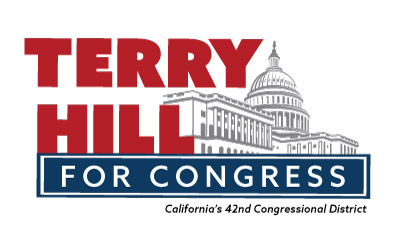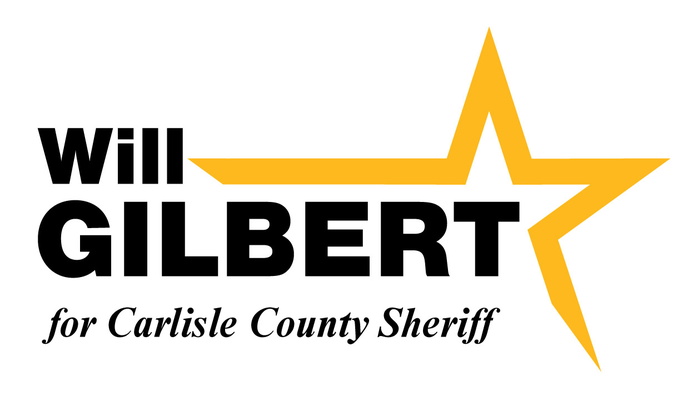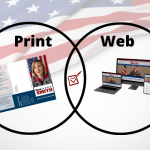It doesn’t matter if you are part of the establishment or a complete outsider; every political campaign needs a brand in order to effectively communicate with voters.
Today, this is more than just a logo, colors, and slogan. How you show up in public and online shapes how voters see you.
Here are tips to create and enhance your political branding.

Stake a claim to your political brand
If you want to know how to brand a political campaign online, it starts with the basics. Get your campaign domain name, X (formerly Twitter) account, and Facebook page as early as possible. Use a similar name for each, so someone can easily tell that they are from the same campaign. For example, a candidate named Jane Doe might choose handles like @JaneDoeForOffice or @VoteJaneDoe across all platforms for uniformity.
Whatever you do, don’t start advertising or having print materials created before you have your website and/or social media accounts under your control. We once had a client who had printed materials before they registered their campaign website domain name. And guess what? It was already taken. The client had to register another domain and toss out a whole lot of flyers.
“The best strategy for building a personal brand is to be 100% ‘you,’ without watering down your personality in any way.” – Gary Vaynerchu
Keep a consistent look across all platforms
One of the first things you’ll want to do is decide on your color scheme and logo design. Take some care in deciding these things, as it is never a good idea to switch your look during a campaign.
Once you have your colors, you’ll want a good campaign logo design that reinforces your campaign brand. Even your font selection and imagery contribute to the overall look. There are certain conventions that political campaigns adapt. In the United States, for example, this often includes standard block lettering, red-white-blue color themes, and a more horizontal layout.
Here are several political logo examples that we’ve designed for our clients:

The capitol building is incorporated into the logo because the candidate is running for – you guessed it – US Congress.

The star symbol indicates that the candidate is running for county sheriff. It a has a solid font, emphasizing the candidate’s last name. This design works well for law enforcement candidates.

In this logo example, the legislative district has been incorporated into the look. Note the traditional block lettering rather than a serif font.
If you are an underdog and really want to stand out from the crowd, switch up your fonts and colors. This is why many independent candidates tend to go with yellows, greens, and purples in their designs. Having a tall logo rather than a wide one will stand out. However, it might be a little difficult to adapt to signage and print pieces, such as letterhead.
If you’re running as an outsider, a different visual style can help you break through the noise. Once you commit to a look, stick with it.
TIP: Put together a brand guide that defines your logo, color scheme, typography, and voice. This keeps everything aligned no matter who on your team creates materials.
Emotional and value-based branding
To build a strong political brand, you need to convey related values and connect emotionally. A short personal story about why you’re running can help voters understand your motivation and what drives your decisions. This fosters trust and relatability, making voters and volunteers feel more invested in you and your campaign.
Case Study: Barack Obama’s “Hope” campaign effectively used storytelling and aspirational messaging to connect with a broad audience. Similarly, Donald Trump’s “Make America Great Again” slogan reinforced a clear emotional appeal to his target demographic.
Free Digital Campaigning Tips: Subscribe for free political campaign guides and updates.
Consistency beyond color and font
Use your campaign logo and color scheme as much as you can. Take social media, for example. Both Facebook and X/Twitter allow you to add an image to the top of your page. While they both have different dimensions, the header images should have a similar look and feel. On Twitter, you can even adjust the colors of your profile page. Even your campaign emails should have a consistent look to them.
If your strategy is to present yourself differently than your opponents, choose visuals and phrasing that reinforce that and use them consistently.
TIP: Have your personal photographs taken by a professional. Select a few good photos and use them consistently on your website and social networks. That way you will be recognizable across multiple online platforms and offline mailings. Add them to your media kit.
Maintain a single winning voice
Ever wonder why politicians use the same phrases over and over (and over) in speeches and interviews? It’s all part of branding a consistent message. This is why political speech tends to be simple, with easily repeatable catchphrases, rather than nuanced and detailed.
Many times, political candidates will stick to an effective campaign slogan. A good slogan will summarize a campaign in a short, memorable phrase. Sometimes it is so important that it is incorporated into a campaign logo.
Content should also be part of your brand. Remain consistent in the tone of your website and social media content. Your material should match previously stated policies and issue positions. Even if others post for your campaign, the ‘voice’ should remain the same. Stay clear, consistent, and positive.
Don’t make everything you post lifeless and dry, as if it were vetted by a dozen public relations experts. Add moments of personality and let people see who you are. Give an opinion. Share an observation. Post photos and video from the campaign trail.
“There’s power in allowing yourself to be known and heard, in owning your unique story, in using your authentic voice.” – Michelle Obama
Enhancing Your Brand with a Style Guide
Enhance your political campaign’s brand with a focused approach to your style guide:
- Collaborate: Once everyone has settled on the design and is sure that it meets the needs of campaign, put together a style guide ‘bible’. A well-defined style guide will ensure brand unity across online and offline messaging.
- Gather and Centralize Assets: Collect all visual elements, including logos, photos, and fonts. Store them on cloud services or shared drives for easy team access. This ensures style guide accessibility and that everyone is using the same base creatives for consistency.
- Provide Clear Examples: Use the style guide to demonstrate correct and incorrect logo usage. You’ll want to include visual do’s and don’ts to prevent common errors. Include reminders to keep colors accurate and proportions intact.
- Create Templates: Develop templates for emails, social media posts, and documents. This makes everyday content easier to produce and keeps everything uniform.
These small steps keep your visual identity consistent and recognizable.
Branding doesn’t end after Election Day
Branding doesn’t end after Election Day. Maintaining a consistent brand post-election helps build trust and keeps supporters engaged for future campaigns. Continue to use your brand in thank-you messages, social media updates, and public appearances. By doing so, you create a foundation for future elections or public service initiatives, reinforcing your identity as a leader.
A well-defined (and liked) brand helps your message cut through the online clutter. That ability to get attention when you need it will be critical when you need to get out the vote.

Branding can help you win your election. Maintain consistency throughout your campaign, and keep it going even after Election Day.
FAQ: Political Campaign Branding
How early should a campaign develop its brand?
As soon as you decide to run. Secure your domain and social handles, choose your visual style, and set a consistent message before announcing. Early branding prevents confusion and avoids rework later.
Do small, local campaigns really need a brand?
Yes. Voters rely on visual cues and repetition. Even a simple logo, clear color scheme, and steady message help you stand out on signs, mailers, and social media.
What makes a political slogan effective?
A good slogan is short, clear, and easy to repeat. It should reflect your core message and connect to what voters care about. If it takes too long to explain, it won’t stick.
How can outsider or independent candidates stand out?
Use distinctive colors, shapes, and phrasing that contrast with traditional red/blue campaign designs. Visual differentiation helps voters remember you, especially in crowded races.
Should candidates use the same photos everywhere?
Yes. A consistent set of high-quality photos helps people recognize you across mailers, signs, websites, and social media. Switching between unrelated images weakens familiarity.
Do I need a style guide for a small team?
A short style guide still helps. It keeps your logo, colors, fonts, and tone consistent—even if you only have a few volunteers creating content.
Free Download: Campaign Branding and Marketing Checklist [PDF]
If you’d like help building a brand that fits your message and connects with voters, we’re happy to walk you through your options.
« The Beginners Guide To Building a Political Website10 Essential Strategies for Successful Political Campaigns »
Tags: personal branding







